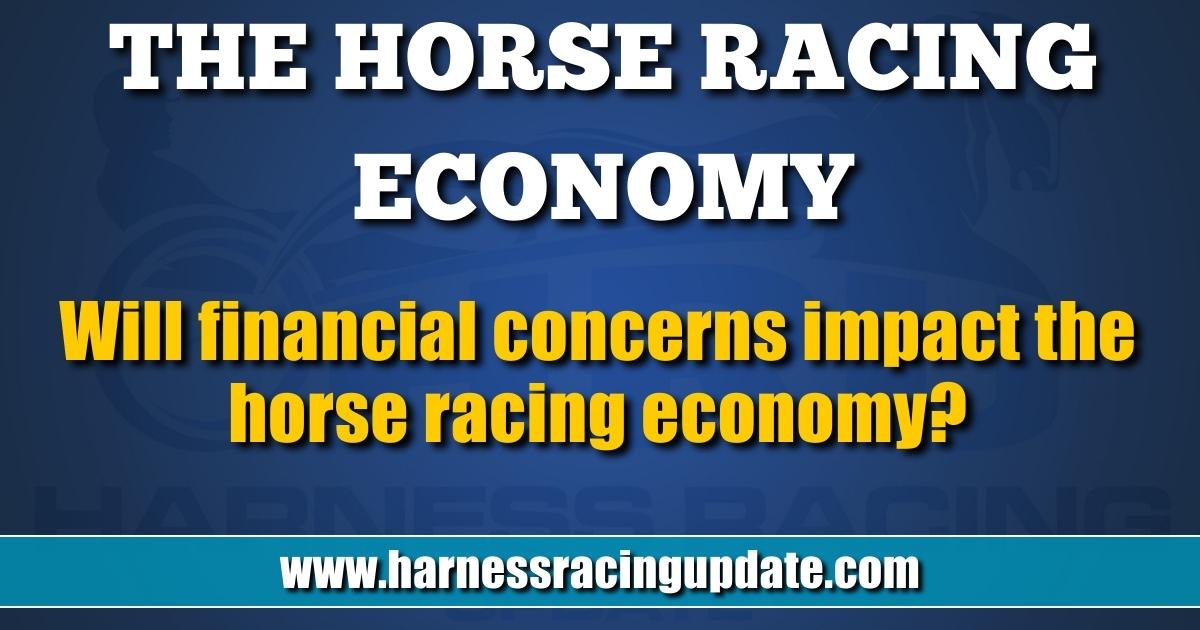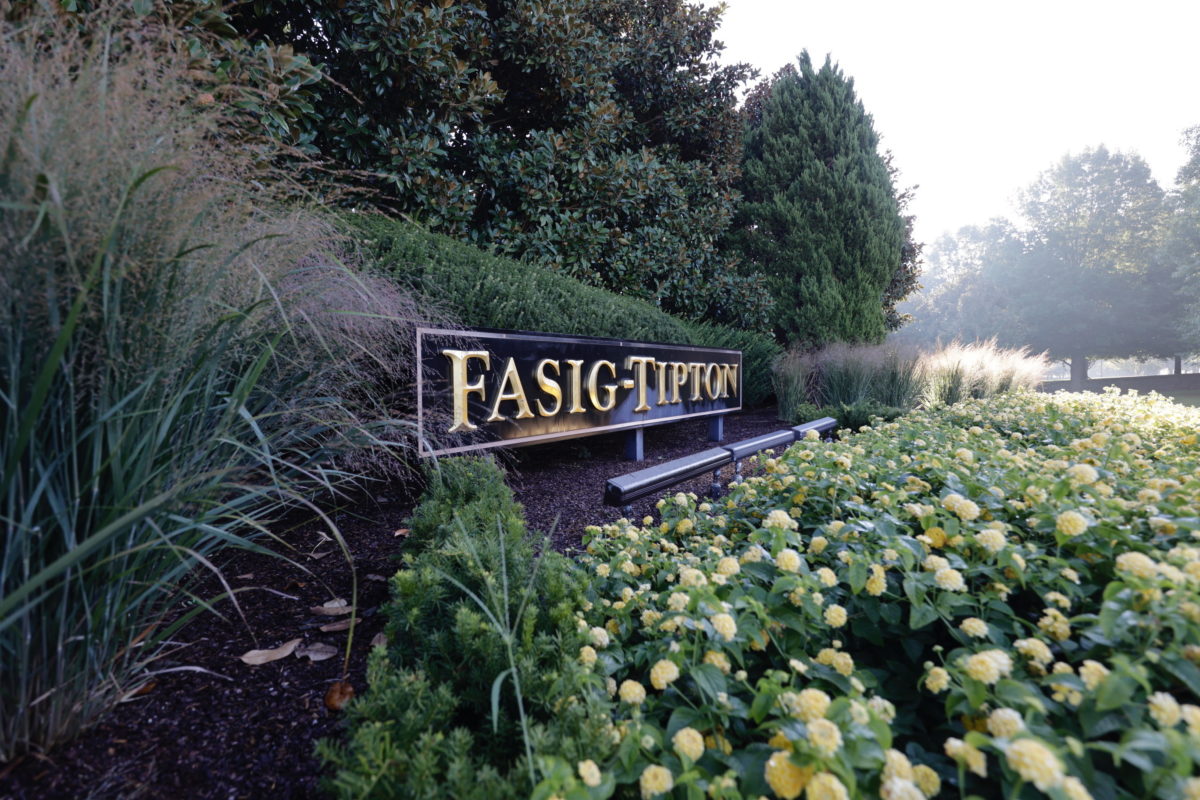Will financial concerns impact the horse racing economy?
Six industry experts opine about global financial conditions and the state of the horse business as the Lexington Selected Yearling Sale is set to begin on Monday night.
By Dave Briggs
Last year, the COVID-19 pandemic had no impact on the Lexington Selected Yearling Sale, which set 18 records, including gross ($56,692,500), average ($65,692), median ($44,000), number of yearlings sold for $100,000 or more (159). The gross surpassed the previous record not by a little, but by some $10 million, up 22 per cent from the previous best.
Surpassing all that even in strong economic times would be a challenge.
But this year, the sale must contend with major challenges in the global economy, including soaring inflation, rising interest rates, major currency fluctuations and great uncertainty around Russia’s invasion of Ukraine. So, how will that impact this year’s sale? Six industry experts weighed in.
“No one is less rich than they were 15 months ago,” said Blue Chip Farms owner Tom Grossman. “Despite everything you read, most people with disposable income have never been richer in this country, which is a whole weird concept.
“I think the horse economy has quietly diversified itself. Our reliance on our top 10 buyers is much lower, in my mind, than it ever has been. The next group of 40, 50, 60, 70 people that can and will sign $100,000 for standardbred and $250,000 for thoroughbred is much deeper than it ever has been.
“The one part that is a little concerning to me, particularly on the trotting side, is the value of the (U.S.) dollar, which is extremely strong. In the past, that has certainly hurt thoroughbred and, to a lesser extent, standardbred sales. However, I think a lot of those foreign buyers already have a lot of assets in dollars and have been successful with their racehorses earning dollar purses such that they are not just going to the bank and withdrawing Euros and now buying a horse that’s 20 per cent more expensive than it was a few weeks ago… Also, I feel like a lot of Canadians have been earning a lot of (U.S.) dollars, so it works both ways.
All American’s Rob Tribbett said the economy of the horse racing business is different than that of the overall economy.
“I think the horse racing business is different than the general economic trends we’re seeing,” Tribbett said, “because it’s a very good time to be racing horses, really at all levels from the yearling sales to the racehorse market because the only way we have racehorses is for people to purchase yearlings. You can make a lot of money racing in all these jurisdictions and then when a horse turns 3 or is about to turn 4, you have the opportunity to sell those horses. There’s a lot of opportunity and the demand is very strong in the racehorse market.”
With 50-plus years of knowledge and experience, Northwood Bloodstock’s Bob Boni feels good about the current horse racing economy.
“I have said this for a very, very, very long time,” Boni told Debbie Little. “I think the horse business, with rare exception of tragic things that have happened – 9/11 was one, the stock market crash in ’87 was another – other than that the horse racing business, I find, is insulated from what goes on in the rest of the world. People want to buy horses. This is their opportunity to buy horses. I don’t see the economy affecting a lot of the people that buy horses.”
Diamond Creek’s Shaun Laungani said, “It’s definitely a sellers’ market, but the buyers are bound to be very selective. Everybody is racing for more money, so our micro economy is very good. The cost of goods and services have gone up for everybody. I’m not predicting record-smashing over last year, which was crazy and good, but I’m expecting – because our micro economy is so good – for it to be very healthy… There’s a lot to be excited about.”
David Reid, owner of Preferred Equine and the co-manager of the Lexington sale said he simply can’t predict how strong the sale will be.
“I’m not smart enough to understand… how the currency valuations will impact somebody somewhere,” Reid said. “Inflation numbers are going to impact somebody somewhere, but I can’t quantify that. So, those are two concerns coming into any marketplace – the global economy, the global currencies, and, naturally, the inflation.
“But we’re bullish on our catalogue. We’re bullish on the industry, so I’m more positive than negative, that’s for sure.
“I’m not an economist. But the horse economy has been resilient. If you’re a horse owner it will depend on what industry your main business is in and how that’s been affected… that has a trickle-down effect. I don’t know how affected the restaurant industry is, for example, or the auto business, the construction business… other industries people have for real livings. I don’t know how that’s going to impact their horse business.
But as Steve Jones of Cameo Hills told Jerry Connors, record purses in almost all jurisdictions means owning horses has rarely been more attractive and, subsequently, the sale should be strong.
“Obviously you have to be concerned (about the economy),” Jones said. “But there is so much money out there in the various programs – Pennsylvania, New Jersey. In New York, you can have a filly go to Batavia, and it’s possible she could race for $110,000. Ontario’s program is obviously good. And the addition of Kentucky has really helped increase the value of certain horses. We have horsemen in New York that normally wouldn’t leave the state much, but they look at the program in Kentucky because there are so many rich opportunities in the current (dual-eligible program).
Tribbett agreed.
“I think what we’re seeing is that the people in the racing industry are a little bit insulated from some of the general economic terms. The biggest thing is the purse structure, like what’s happening in Kentucky is very promising and it’s stabilized in some other jurisdictions,” Tribbett said.
Often, the standardbred industry looks at its thoroughbred cousins to gauge the strength of the horse racing economy.
“We just finished the Keeneland sale in September, which was the highest grossing sale in the history of Keeneland and that was without really… very limited international, particularly Arab, participation. It was a wide group of buyers with over $400 million spent,” Tribbett said.
“The (Keeneland) thoroughbred sale was even stronger than the headline,” Grossman said. “The clearance rate, the amount of money that was left for day 6, 7 and 8 at the sale. I’ve been in Lexington a few days and talked to a lot of people and there was genuine bewilderment almost at how good, solid and strong it was. It wasn’t four or five people going crazy, it was what you want out of a horse sale, so that’s encouraging.”
Though, Reid cautions that the thoroughbred industry is more of, “a global business and there were participants there that were weaker than they were in the past. Some of them were stronger, too. It goes back to what is the source of their core wealth.”
Boni said the strength of thoroughbred sales can be a poor barometer.
“You’ll hear people want to compare what happens with the thoroughbreds to our market,” Boni said. “I think they’re stand-alone markets. I don’t think one has a tremendous bearing on the other. Some years it will be a little stronger than others. Last year was probably as strong as you’ll ever imagine it to be. And will it be the same (this year)? Maybe, maybe not, but I wouldn’t say no.”
In the end, selling yearlings at one of the sport’s two most prestigious auctions is about selling dreams to people with a lot of disposable income, regardless of the current economic conditions.
“With our yearlings, we offer people a chance to campaign a star, to win some of the biggest races in the sport, to be in the spotlight,” Jones said. “Basically, when we are selling yearlings, we are selling a dream… a dream that our customers can relate to, can aspire to, can have a chance to reach with a star horse, hopefully one of ours. We are all selling the dream of having a champion racehorse.”
with files from Debbie Little and Jerry Connors


















